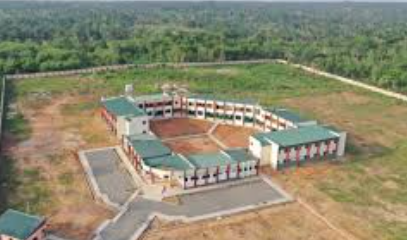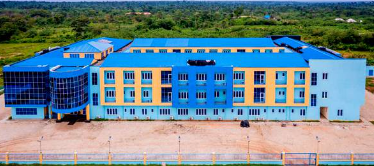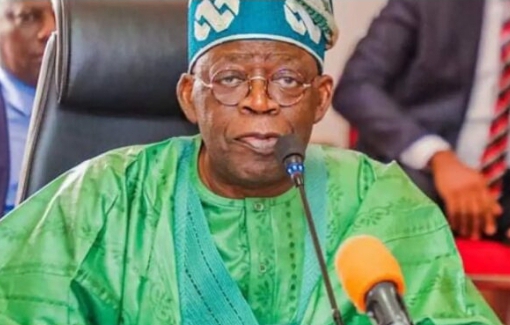[By Idowu Faleye: +2348132100608]
Dr. Kayode Fayemi, a two-term governor of Ekiti State, is widely recognized for his ambition and strategic vision for development. His leadership in Ekiti was marked by several ambitious initiatives aimed at transforming the state, from infrastructure projects to social and educational reforms. Fayemi’s administration saw the initiation of large-scale projects such as the Ekiti Cargo Airport, Ekiti Knowledge Zone, water resource projects, basic education improvements, the Obafemi Awolowo Resource Centre, health infrastructure upgrades, and several gender-focused initiatives. These projects not only highlighted his commitment to Ekiti’s development but also painted a picture of a governor with aspirations to leave a lasting legacy.
Yet, despite his visionary plans, many of these projects remain incomplete or abandoned. The promise they once held has given way to questions, criticisms, and, ultimately, disappointment. Who bears the responsibility for these unfinished legacies? Was it Fayemi’s own decisions, external political factors, or unforeseen challenges? The question of blame is not only complex but also crucial in understanding Fayemi’s legacy.

Governor Fayemi’s tenure was marked by a clear and ambitious developmental agenda aimed at transforming Ekiti State into a beacon of progress. His vision spanned multiple areas, from economic growth and infrastructure development to social services and gender equality.
The Ekiti Cargo Airport was envisioned as a game-changer that would put Ekiti on the economic map. Paired with the Knowledge Zone, it was designed to create both economic and educational opportunities, attracting investment and positioning Ekiti as a knowledge hub within Nigeria. These projects were intended to harness Ekiti’s unique location and resources, making it a centre for commerce and learning.
Fayemi also focused on improving essential services, particularly water supply and basic education. Recognizing the critical role of clean water in public health and quality of life, his administration launched water projects aimed at providing sustainable water resources to residents. His efforts in basic education were directed at building a strong foundation for Ekiti’s future generations.
Beyond these basics, Fayemi used his diplomatic skills and national influence to elevate Ekiti’s educational landscape, securing the conversion of Ikere College of Education to Bamidele Olumilua University of Education, Science and Technology. He further leveraged his network to establish new institutions, such as bringing the Army Secondary School to the state and founding Ekiti Polytechnic, though it was located in his hometown. These achievements, rooted in Fayemi’s strategic vision, underscored his dedication to enhancing educational opportunities and infrastructure in Ekiti and highlighted his ability to attract development partners crucial to long-term progress.

Fayemi’s attention to social infrastructure was evident in projects such as the Obafemi Awolowo Resource Centre, Pavilion, and Terminal Motor Park. These projects were meant to enhance the social and cultural fabric of Ekiti, providing spaces for education, community engagement, and social activities. Additionally, the construction of a new governor’s house symbolized his commitment to establishing a lasting seat of governance that reflected Ekiti’s rising profile and aspirations on the national stage.
Fayemi understood that for development to be truly transformative, it needed to extend to Ekiti’s rural farming communities. He prioritized the construction of farmstead roads, aimed specifically at enhancing the agricultural sector by improving access to remote farmlands. These roads were intended to facilitate the easy transportation of agricultural products to the Ekiti Cargo Airport, where local goods could enter global markets, boosting economic growth for farmers and the state.
While these projects underscored Fayemi’s vision, they also highlighted the immense challenge of translating ambitious plans into lasting change. For all their potential, many of these projects remain incomplete, leaving a trail of questions about where things went wrong.
One significant factor that may have contributed to the derailment of Fayemi’s projects was his ambition for higher office. Fayemi’s aspiration to become Nigeria’s president was not a secret. During his second term as governor, his political ambitions grew, and it became increasingly clear that he was eyeing the presidency. This aspiration, while commendable as a natural progression in his career, may have shifted his focus away from Ekiti.

There are reports suggesting that Fayemi’s presidential aspirations consumed both financial and human resources that could have been directed toward completing his state projects. Running a presidential campaign requires a substantial investment, both in terms of time and money. As Fayemi’s ambition grew, resources initially earmarked for Ekiti’s development were reportedly diverted to support his political future.
While Fayemi’s ambition to elevate Ekiti on a national level was understandable, the cost was significant. The abandoned projects represent a price paid not by Fayemi alone, but by the people of Ekiti. These projects were launched with the promise of a better future for the state’s residents, yet they remain incomplete—a silent testament to the toll that unfulfilled ambition can take.
This shift in focus led many to question whether Fayemi’s goals for Ekiti took a back seat to his political dreams. Although presidential ambition is not inherently detrimental, it raises a crucial question: should the promise of personal advancement ever come at the expense of public duty?
After Fayemi’s departure, a new leader took office. Fayemi’s successor, Biodun Oyebanji, a “level-headed and reliable” individual, chose to prioritize the continuation of Fayemi’s projects rather than launch his own initiatives. This decision has played a crucial role in preserving Fayemi’s legacy, albeit indirectly.
Read Also: Be Wary of World Bank’s Advice: A Cautionary Counsel for Nigeria Government
By choosing continuity over new initiatives, Fayemi’s successor helped ensure that Ekiti residents saw at least some return on the investments made during Fayemi’s tenure. Projects that could have become symbols of failure and wasted resources were, in some cases, completed or continued, reducing the public’s potential dissatisfaction with Fayemi’s administration.
Had these projects remained entirely abandoned, Ekiti residents might have expressed greater frustration and called for accountability. The successor’s decision to complete these initiatives has mitigated some of that backlash, allowing Fayemi’s legacy to remain somewhat intact despite the challenges faced during his governorship.
Fayemi’s successor’s commitment to project continuity demonstrates the importance of governance that looks beyond personal ambitions. While Fayemi may have initiated the projects, it was his successor’s steady focus that allowed Ekiti to retain a sense of progress and purpose. Fayemi successor plan itself is also one of Fayemi’s visionary accomplishment.
When examining Fayemi’s legacy, it becomes clear that there are two distinct lenses through which it can be viewed: one focused on his intent, and the other on the outcomes of his actions.
Through the lens of intent, Fayemi was a leader with grand ambitions, a visionary who dreamed of elevating Ekiti to new heights. His projects represented a governor determined to make a lasting impact and to transform Ekiti into a model state. In this view, Fayemi’s ambition was not inherently flawed; it was driven by a genuine desire to see Ekiti flourish.
Yet, when viewed through the lens of results, Fayemi’s legacy becomes more complex. His unfinished projects and diverted focus tell a different story—one where vision was overshadowed by unfulfilled promises. The costs of his ambition were not just monetary; they included the erosion of public trust and the tangible losses associated with incomplete infrastructure and services.
Read Also: Poor Service Delivery in Nigeria: Who Is to Be Blamed for Approving Substandard Projects?
To better understand this duality, consider a son from a poor family who uses the family’s last savings to buy a lottery ticket in hopes of a better future for the family. While his intent of lifting his family out of poverty is noble, the outcome can lead to hardship and disappointment. Fayemi’s legacy mirrors this anecdote; his intentions may have been pure, but the results reveal the risks of putting ambition before responsibility.
The question remains: could Fayemi’s presidential ambition have ultimately benefited Ekiti if realized? His political reach and established connections with international organizations and development partners suggest that a successful run could have brought Ekiti even greater developmental opportunities.
Fayemi’s network could have unlocked resources and partnerships for Ekiti on a national and even global scale. His familiarity with international development frameworks might have opened doors for projects in health, education, and infrastructure.
As president, Fayemi’s capacity to prioritize Ekiti’s development would have been unprecedented. With control over national resources, he could have implemented policies directly benefiting the state, creating a unique legacy that extended beyond his governorship.
One of Dr. Fayemi’s defining traits was his ability to leverage his influence and extensive network for the advancement of Ekiti State. Known for his strategic positioning, Fayemi used his connections to place numerous Ekiti indigenes in pivotal roles within national and international public service—albeit many of these individuals were close allies and supporters.
His international network, cultivated over years of political and diplomatic engagement, attracted development partners to Ekiti, facilitating projects that enhanced the state’s infrastructure, health, and education sectors. Fayemi’s reach extended beyond Ekiti as he supported fellow governors in the Nigerian Governors’ Forum, helping them secure partnerships and resources that bolstered development in their own states.
This track record underscores how Fayemi’s presidential ambitions, if realized, could have brought even greater benefits to Ekiti. With direct access to national resources and global partnerships, he would have had the capacity to amplify the developmental initiatives he began, potentially transforming Ekiti’s long-term trajectory on a larger scale.
While this potential outcome is speculative, it nonetheless raises the question of whether Ekiti’s short-term sacrifice might have yielded long-term rewards if Fayemi had succeeded in his presidential bid.
The story of Fayemi’s abandoned projects is one of ambition and complexity, marked by both intention and consequence. While Fayemi’s vision for Ekiti was bold and transformative, the outcome tells a story of incomplete promises and unrealized potential. His ambition for higher office came with costs that Ekiti State continues to bear.
Read Also: The Impact of Multiple Tax Burdens on Production Costs and Commodity Prices in Nigeria
In the end, Fayemi’s legacy is a dual narrative: one of grand vision and intent, and another of pragmatic results. His ambition, while grounded in a sincere desire to uplift Ekiti, led to decisions that diverted focus away from projects essential to the state’s immediate progress. The balance between these two sides of Fayemi’s legacy leaves a lasting question for the people of Ekiti—and indeed, for leaders everywhere: Can ambition truly be justified if it comes at the cost of one’s primary duty to those who first entrusted them with power?
As the people of Ekiti reflect on Fayemi’s time in office, they are left with a bittersweet legacy—a vision full of promise, but ultimately sacrificed on the altar of ambition. The projects he started could have transformed Ekiti, lifting countless families out of poverty and setting a foundation for future prosperity. Yet, that dream was traded for a distant political pursuit that never materialized, leaving Ekiti’s hopes abandoned and its people bearing the cost. In the court of the Ekiti masses—the very people Fayemi sought to uplift—he stands judged, not for his intentions, but for the setback they endured as a result. The once-bright prospects have dimmed, and the people he aspired to elevate are left struggling, pushed deeper into poverty by dreams that never bore fruit.
Idowu Faleye:Ekiti-born Policy Analyst, IBM-certified Data Analyst, and Lead Analyst at EphraimHill Data Consult. Publisher of EphraimHill DataBlog, addressing topics of public interest. Reach him via WhatsApp at +2348132100608 or email ephraimhill01@gmail.com.
© 2024 EphraimHill DC. All rights reserved.











































![The Trend of Insecurity in Nigeria. [Part 2]](https://ephraimhilldc.com/wp-content/uploads/2024/09/Computer-Monitoring-of-Remote-areas.png)



































